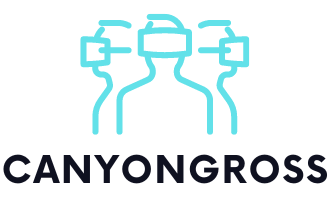Digital platforms have revolutionized the global gambling landscape, with millions of users engaging in thrilling games and betting on major sports competitions. As online casinos continue to evolve, the need for proper regulations and security for customers is the main aspect. Many wonder whether it’s safe enough to join gaming platforms and share their personal information, being confident that the website guarantees consumer protection. Let’s discover how modern market players address this point.
Licensing and Regulatory Oversight
In many jurisdictions, online gambling is legal, and specific regulations have already been set. Here, a license from a responsible authority is the key pillar: regulators like UKGC, MGA, Curaçao eGaming, and Kahnawake Gaming Commission confirm that the service provider operates according to the industry standards. Certified online casinos must comply with a set of requirements:
- Age and identity verifications. This system is developed to ensure that users joining gambling platforms are of legal age to engage in risky activities and haven’t struggled with compulsive disorders before
- Fair gaming audits. These regular tests from independent agencies are held to check whether online casino games outcomes aren’t rigged or manipulated; ensuring a transparent environment and equal conditions for all players is critical to building trust
- Anti-money-laundering policies. This mechanism is created to track gamblers’ transactions and check whether they engage in illegal financial activities, with suspicious behaviors that must be reported to responsible authorities
- Secure deposit and withdrawal systems. Players should be confident that their money won’t be stolen, and they will be able to replenish gaming balances without any security risks
- Usage of data protection measures. SSL encryption is the main method used to protect customers’ details from third-party intervention. Many online casinos also integrate multifactor and biometric authentication to boost data safety
- Data privacy compliance. Licensed gambling sites must clearly indicate how players’ information is collected, stored, and used, which should be indicated in the operator’s privacy policy

This regulatory framework is the globally accepted basis for ensuring enhanced player protection. However, its peculiarities vary in different regions. Some countries have more advanced legislation, while others have a weaker foundation but are already working on developing specific laws for the digital sector.
Responsible Gambling Tools: Motivating Users to Stay in Control
Overspending, which leads to gambling disorders, is the main industry challenge. From 1.2% to 6% of the world’s population (depending on the region) struggles with compulsive habits, and instant access to the best casino sites worsens the problem. Responsible gambling is a set of measures encouraging customers to remain in control of their actions and know when to stop.
Many operators promote the safer gaming approach by offering on-site deposit limits and cooling-off periods. Session timers are also helpful here; users can set the amount of time they spend on the platform, after which they receive a notification about the importance of taking a break. Self-exclusions are another solution to cope with gambling-related problems, but the challenge is that most programs are only launched voluntarily. Players may not understand they have the first signs of the disorder and ignore the opportunity to get limited access to potentially harmful content.
Behavioral Monitoring with Artificial Intelligence and Machine Learning
AI-driven systems that are integrated in many online casinos help operators analyze player actions and identify typical patterns, showing the first signs of compulsive gambling. Leading platforms use this technology to boost transparency and security by providing early fraud alerts and detecting problem habits.
When users join One x Bet, they can enable push notifications that will inform them about the need to take a break or reconsider their gambling habits to avoid losses. This system is more efficient than manual evaluation, as the number of people interested in playing online casinos continues to increase, making it challenging for operators to cope with the increased workload.
Third-Party Support: Helplines and Treatment Organizations
In 2025, iGaming is a massive ecosystem, and consumer protection doesn’t depend on a single online casino. Instead, multiple third-party resources, like helplines or support groups, are accessible to those suffering from problem gambling habits. Reputable operators operating under licensing place links to responsible organizations on their official websites so that members can contact them immediately after recognizing they cannot cope with their cravings for this risky entertainment. Non-profits like GamblersAnonymous have vast experience in treating compulsive habits and can help users recover as fast as possible.
Marketing and Advertisement Ethics
Online gambling companies now operate in a competitive environment and are forced to advertise their services using all the possible means. At the same time, promotions must remain ethical and never target vulnerable populations. For instance, regulators in some jurisdictions ban the possibility of offering bonuses to specific categories to ensure that gambling remains ethical.
Gaps and Challenges of the iGaming Sector
Despite multiple consumer protection measures initiated across jurisdictions, the global risk of addiction still exists. In most countries, operators can only provide recommendations and notifications, and mandatory blocks for compulsive players aren’t mandatory.
Hence, users with the first signs of problem behaviors can continue to gamble without restrictions, which often results in severe conditions. In addition, many platforms still operate illegally and offer no protection measures, which increases vulnerability.

